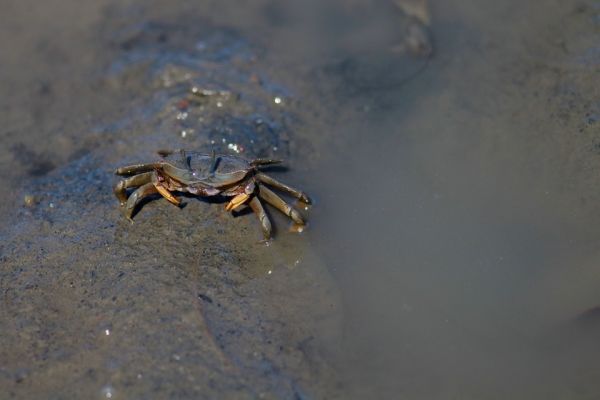Albeit very small, with a carapace width of only 3 cm, the Atlantic mangrove fiddler crab Leptuca thayeri can be a great help to scientists seeking to understand more about the effects of global climate change. In a study published in the journal Estuarine, Coastal and Shelf Science, Brazilian researchers supported by FAPESP show how the ocean warming and acidification forecast by the end of the century could affect the lifecycle of these crustaceans.
Embryos of L. thayeri were exposed to a temperature rise of 4 °C and a pH reduction of 0.7 against the average for their habitat, growing faster as a result. However, a larger number of individuals died before reaching the final embryonic stage compared with those allowed to remain in conditions typical for the environment normally inhabited by the species.
“This crab is very important ecologically. Its burrows contribute to the organic matter cycle, and its larvae serve as food for many other species. We can therefore assume that the alterations to its embryos caused by climate change will have a cascade effect. Animals like these with a longer embryonic stage are particularly endangered,” said Tânia Márcia Costa, principal investigator for the project. Costa is a professor at the Bioscience Institute of São Paulo State University’s Coast Campus (IB-CLP-UNESP) in São Vicente.
The project was supported by the FAPESP Research Program on Global Climate Change (RPGCC).
Read more at Fundação de Amparo à Pesquisa do Estado de São Paulo
Photo Credit: ozzymosis via Pixabay


